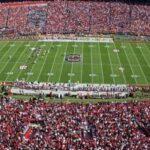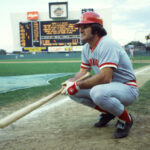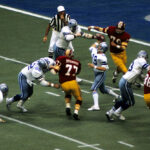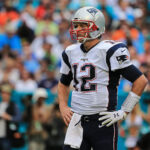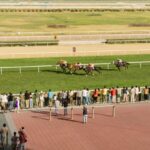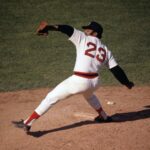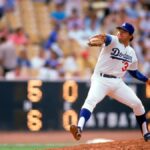Roger Federer Is No ‘Casey At the Bat’
Somewhere men are laughing, and somewhere children shout; but there is no joy in Mudville – mighty Casey has struck out.
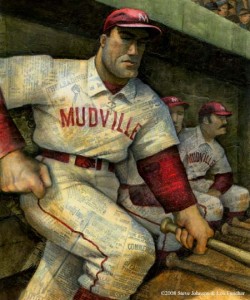 At the start of the $5 million Breeder’s Cup Classic held at Churchill Downs on November 6, the track announcer kept repeating “And Zenyatta is dead last,” as the race continued.
At the start of the $5 million Breeder’s Cup Classic held at Churchill Downs on November 6, the track announcer kept repeating “And Zenyatta is dead last,” as the race continued.
It was her 20th and supposedly last career race for the finish line. The big girl had made her reputation running over the competition including all the boys for the past four years.
In fact, she had never lost a race. Now as the oldest in the field at age six, Zenyatta had one more hurdle––in order to allow her to go out as perhaps the greatest racehorse in the history of the sport.
Traditionally Zenyatta came out the gates slow and sat at the back of the pack until the final curve toward home. That’s when she turned on the afterburners launching her signature heart-stopping finish.
Zenyatta continuously left the competition panting and spent, wondering how this racing marvel had come so far so fast, beating them to the finish line.
During this race on November 6th, the track announcer at last began to report Zenyatta was moving forward, zigzagging in and out, squeezing her way past most of the pack.
The mesmerized crowd took a collective breath. They waited––as the big girl powered closer and closer to the finish while the announcer built to a climax shouting out “Zenyatta, Zenyatta…” Finally he said the one thing no one wished to hear…”Blame wins.”
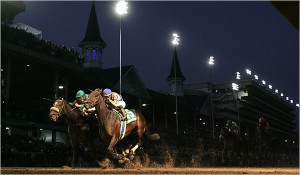 The lady lost by a scant head, running her heart out to win that last trophy––the final testament insuring her immortality in racing annals.
The lady lost by a scant head, running her heart out to win that last trophy––the final testament insuring her immortality in racing annals.
While her jockey buried his head in his hands and the crowd sat in stunned silence, Zenyatta passed into the history books with this one tiny blemish forever clouding her perfection.
Did she strike out? No one who watched the race can face that conclusion. So it goes…
There comes a point in the career of every highly-honed, successful athlete when the handwriting on the wall grows painfully clear––that day when Jack Nicklaus doesn’t make the final cut, when Carl Lewis could not make it past the preliminaries or when Bobby Thompson packed up his bat and glove––striking out for the last time––like the inimitable Casey.
The supposition is that Casey striking out marked the end of his career as the savior of the Mudville Nine. For the rest of the sporting world, the question remains––when do you leave?
Do you pack up your gear before you are traded, before you stop caring, before your body quits or before you embarrass yourself? It is never a simple decision.
It remains an individual one based on many personal factors.
Fans and the media,however, abhor uncertainty. They dwell on the probabilities trying to outguess motives and assess the sports star’s decision-making prowess.
This need to rush to judgment––to put a period at the end of the last entry––puts undue pressure on the athlete. Not many can stand up to such constant harassment by the press.
This plays out in tennis as well as other major sports. In fact, in tennis it can be especially trying.
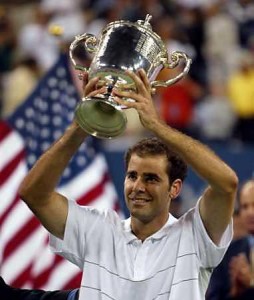 For example, the media hounded Pete Sampras from one corner of the globe to the other with unending questions about when he was going to retire.
For example, the media hounded Pete Sampras from one corner of the globe to the other with unending questions about when he was going to retire.
They gaped and grappled with the American’s noncommittal response to their persistent inquiries, pointing out that he had dropped out of the top ten in the rankings, that he had not won a major for two years, that other players were better than he was.
These were things Sampras was well-aware of without a doubt.
But Sampras felt he had another major title in him and he stayed in tennis until the U.S. Open in 2002 when he won his last.
The treatment of Pistol Pete by the press left the champion with a bad taste in his mouth . When the big man hit his last homer, he left the game on his own terms,
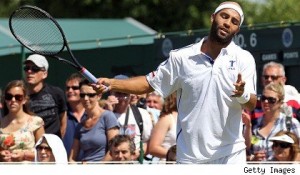 Recently ESPN commentator Pam Shriver made some unkind remarks about James Blake who was trying to work his way back after injury suggesting that it was time for James to hang it up.
Recently ESPN commentator Pam Shriver made some unkind remarks about James Blake who was trying to work his way back after injury suggesting that it was time for James to hang it up.
The problem is that Blake heard her unkind remarks and did not react well to them.
It was egregious behavior on the part of the ESPN commentator who should have been removed from the court for continuing to harass the player while he tried to concentrate on the match at hand.
Shriver superseded her role and should have been suspended for her unthinking, injudicious remarks.
She personified the press in its worst role––as judge and jury.
The press also tried to push the remarkable Agassi but he just looked them in the eye and smiled, continuing to play top-notch tennis into his mid-thirties.
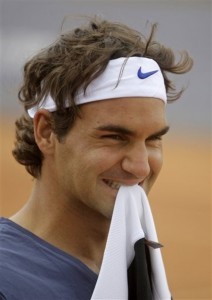 Emulating Agassi, Roger Federer grins playfully, maintaining his decorum and his top-five level of play. Federer, who is the age now that Sampras was a decade ago when Pistol Pete began to fade, has an entirely different road ahead.
Emulating Agassi, Roger Federer grins playfully, maintaining his decorum and his top-five level of play. Federer, who is the age now that Sampras was a decade ago when Pistol Pete began to fade, has an entirely different road ahead.
The Swiss is not sitting at the back of the pack, nor is he looking for one more homer to end his career. The World No. 2 feels no sense of urgency, no panic to accomplish more because, face it, what else does Federer have to add to his impressive resume?
There are new records set almost every time Federer sets foot on the court.
But here is the remarkable aspect of this saga––the press cannot touch him so far. They recognize that Federer is the bread and butter of tennis.
Thousands of the tennis public may not adore this man but they respect his career. Federer continues to pack in crowds, generating massive online reads, and huge TV audiences. He has also become an advertising guru.
Unlike Brett Favre, Federer does not feel compelled to explain his presence every time he takes the court. The current state of his game speaks for itself. Federer is in no danger of embarrassing himself or striking out like deluded Casey.
When he reaches that point, the man from Switzerland will walk away with his dignity intact. You can bet on it.
There was ease in Casey’s manner as he stepped into his place;
There was pride in Casey’s bearing and a smile on Casey’s face.
And when, responding to the cheers, he lightly doffed his hat,
No stranger in the crowd could doubt ’twas Casey at the bat.
